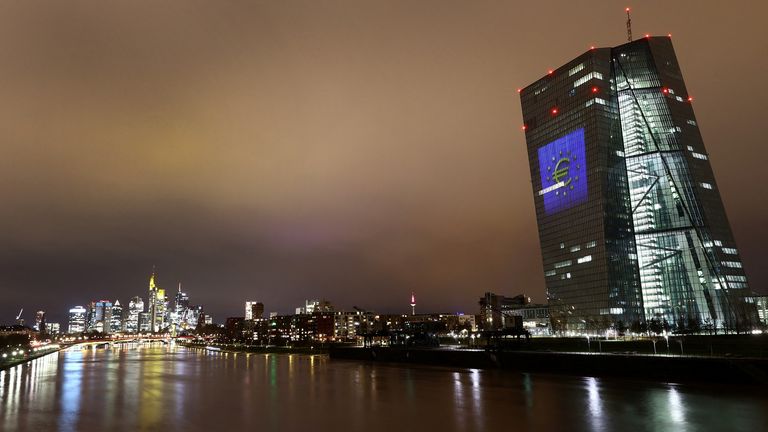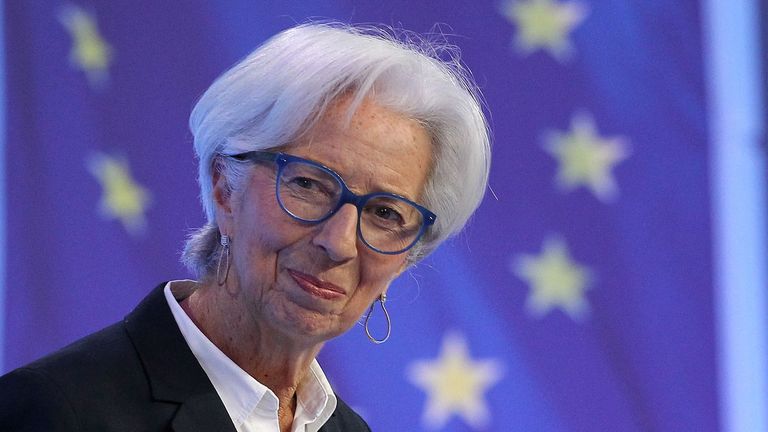European Central Bank will raise interest rates in July for first time in 11 years
Like many central banks, the ECB is now under pressure to address the issue of rising inflation.
Thursday 9 June 2022 15:18, UK
The European Central Bank will raise interest rates in July for the first time in 11 years, followed by another hike in September.
The move will see it follow other central banks in the shift from supporting pandemic economies to fighting rapidly-rising inflation.
The Bank of England has approved four rate increases since December and the US Federal Reserve raised its rate by a half-point in May.
The ECB, during a meeting of its 25-member monetary policy council on Thursday, described inflation as a "major challenge" that has "broadened and intensified" in the 19 countries where the euro is used.
It said: "The Governing Council intends to raise the key ECB interest rates by 25 basis points at its July monetary policy meeting.
"The Governing Council expects to raise the key ECB interest rates again in September.
"If the medium-term inflation outlook persists or deteriorates, a larger increment will be appropriate at the September meeting."
Europe's annual consumer price increases hit 8.1% in May - the highest since records began in 1997, and well above the bank's target of 2%.
The ECB said that inflation is likely to average 6.8% this year - higher than the 5.1% it predicted in March.
Inflation next year is expected to average 3.5%, falling to 2.1% in 2024 - still above the bank's target.
By raising rates, a central bank can influence what people, companies, and governments have to pay to borrow money, making it an important tool against inflation.
But it can also hamper growth, with higher rates making credit more expensive for businesses.
The ECB cut its growth projection for this year from 3.7% to 2.8%, insisting that the rate hikes would be "gradual but sustained".
The ECB also confirmed a previous announcement that its economic stimulus programme will end next month.
The prospect of sharp rate rises helped the euro gain half a cent against the pound though it later went into full reverse, with sterling up by more than half a cent, following a news conference by ECB president, Christine Lagarde.
The former French finance minister had said the path of rate increases would be "gradual but sustained" after September.
"High inflation is a major challenge for all of us," the bank said in a policy statement.
"The governing council will make sure that inflation returns to its 2% target over the medium term."
European stock markets also fell by around 1%.
But Bill Papadakis, macro strategist at Lombard Odier in Zurich, said of the reaction: "The possibility of a larger increase from September raises the risk of an ECB policy mistake.
"Conditions in the euro area are different: GDP is still lower than its pre-pandemic levels, wage growth is much more subdued, and growth is threatened by the war in Ukraine.
"Crucially, the war is fuelling higher energy prices, which in turn are driving high inflation in Europe.
"More costly energy eats into consumers' real incomes, undermining growth, which is likely to suffer if the ECB goes ahead with aggressively tighter monetary policy."




